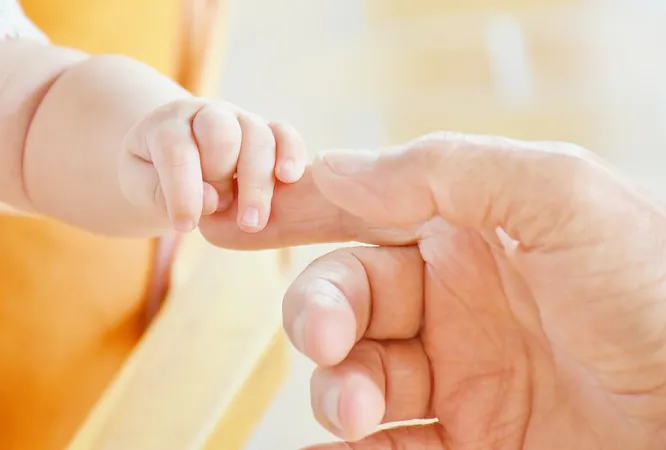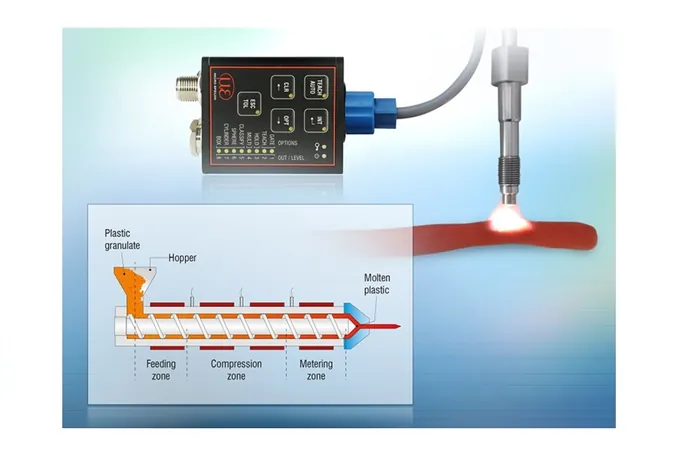
Breakthrough Study Shakes Up Treatment for Infants with Bronchiolitis
2025-06-26
Author: Siti
A groundbreaking clinical trial in the UK has revealed shocking news for the treatment of infants with severe bronchiolitis. Contrary to popular belief, a common surfactant therapy used in premature babies offers no additional benefits for critically ill infants relying on life support.
This significant finding was unveiled at the prestigious 34th International Congress of the European Society for Pediatric and Neonatal Intensive Care (ESPNIC) in Alicante, Spain, sending ripples through the medical community.
What is Bronchiolitis?
Bronchiolitis, primarily caused by RSV (respiratory syncytial virus), infects the lungs of newborns and leads to thousands of hospitalizations each year. This seasonal viral illness can be particularly severe in premature babies, who often lack sufficient surfactant to breathe easily.
The BESS Trial: Major Findings
The BESS trial stands as the largest randomized study focusing on surfactant treatment for bronchiolitis, conducted across 15 children's hospitals in England, Scotland, and Northern Ireland. Involving 232 critically ill infants, the results were clear: surfactant therapy did not shorten the duration these babies spent on ventilators.
Expert Insights
Professor Calum Semple OBE, the leading researcher from the University of Liverpool, expressed disappointment: "The treatment was safe but failed to improve recovery times for these severely ill infants. Our hopes were high that surfactant could speed up healing, but the evidence relays a different story."
The High Stakes of Bronchiolitis
As the leading cause of winter hospitalizations for infants in the UK, bronchiolitis impacts primarily those under one year old. Among the 25,000 babies admitted due to the illness, around 1,000 require intensive care and ventilator support. Unfortunately, no specific treatments currently exist for bronchiolitis, emphasizing the importance of ongoing research.
A Call for Future Research and Prevention
Running over six winter seasons from 2019 to 2024, the BESS trial aims to provide families and healthcare providers with lucid answers. Though the surfactant treatment will not be part of routine care, Professor Semple highlighted the necessity for continued research into better therapeutic options for these vulnerable infants. He urges expectant mothers to receive the RSV vaccine during pregnancy, as it plays a crucial role in protecting newborns from severe bronchiolitis.





 Brasil (PT)
Brasil (PT)
 Canada (EN)
Canada (EN)
 Chile (ES)
Chile (ES)
 Česko (CS)
Česko (CS)
 대한민국 (KO)
대한민국 (KO)
 España (ES)
España (ES)
 France (FR)
France (FR)
 Hong Kong (EN)
Hong Kong (EN)
 Italia (IT)
Italia (IT)
 日本 (JA)
日本 (JA)
 Magyarország (HU)
Magyarország (HU)
 Norge (NO)
Norge (NO)
 Polska (PL)
Polska (PL)
 Schweiz (DE)
Schweiz (DE)
 Singapore (EN)
Singapore (EN)
 Sverige (SV)
Sverige (SV)
 Suomi (FI)
Suomi (FI)
 Türkiye (TR)
Türkiye (TR)
 الإمارات العربية المتحدة (AR)
الإمارات العربية المتحدة (AR)